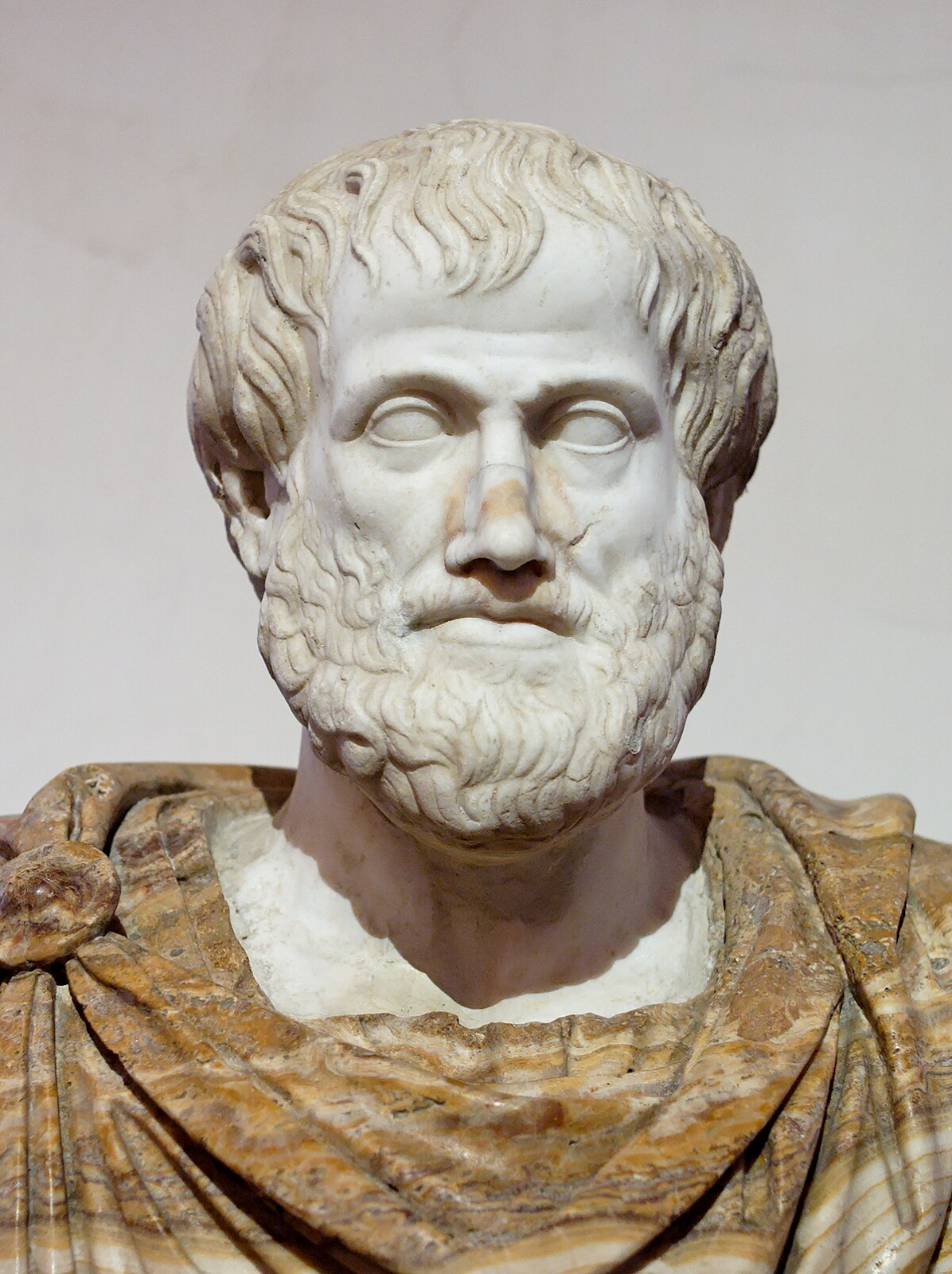Taj Week 16: Would You Want to Have a Conversation With Aristotle?
Would You Want to Have a Conversation With Aristotle
Over the weekend, while I was taking one of my many breaks from studying AP testing materials, I stumbled upon an old keynote from none other than Steve Jobs. Usually soundbites from Jobs are quite electrifying, so I decided to watch the clip in its entirety.
Jobs began his keynote with an interesting statement: he was extremely jealous of Alexander the Great. However, not for the obvious reasons. He was not jealous of Alexander's tactical genius and impressive military record. He was not jealous of Alexander's massive empire stretching from Greece all the way to northern India.
He was jealous that Alexander's tutor was Aristotle.
Jobs notes that you can read the writings of Aristotle, and you can consult a professor who intensely studied the works of Aristotle. But it is virtually impossible to get Aristotle's authentic view on any subject or question. Although this is not a profound or enlightening thought, Jobs follows this statement with a prediction. He believed that in the near future, spearheaded by the future's Aristotle, we would innovate technologies that could compile the memories, logic, and morals of an individual into a computer.
 |
| Source |
In many ways, Jobs predicted the rise of AI and LLMs.
This statement made me wonder if it could be possible to store every single memory held by an individual and query that data to create a Steve Jobs or Aristotle chatbot. According to the Neurological study, the human brain can hold as much as two million gigabytes or two million petabytes of data stored in memories (Source). To put this into perspective, ChatGPT-3 is estimated to be trained on 570 gigabytes of data, I will note this is a very rough estimate as Open AI does not release their training data statistics (Source). Regardless this is a huge margin of difference between data storage.
Ultimately, I am confident that in the future we will have the ability to query millions of gigabytes and possibly the opportunity to have a conversation with the geniuses of the past. Just as Steve Jobs predicted over 25 years ago.


Hey Taj! Given that this quarter’s blog topic is language and memory, the title of your blog stood out to me as an unusual one. As such, I was compelled to click on it and read through your unique discussion. I have to admit that I was interested in your connection between Steve Jobs, a pioneer of the modern age, and Aristotle, a prominent figure in the ancient world. The most surprising relation, however, was that between Aristotle and Alexander the Great. I never knew that the former was the tutor of the latter, so that was an interesting fact to learn. Nevertheless, I like how you continued this stream of connections through the link between Aristotle and modern artificial intelligence. I think your mention of the storage capacity of the human brain—about “two million petabytes of data”—demonstrates the value of our ability to remember. The difference between this number and the storage capacity of Chat-GPT is astonishing. It seems like we have made much progress in artificial intelligence and its capabilities, but this huge margin indicates that we have hardly scratched the surface in terms of the memory of such entities. I am also confident that the capacity of these technologies will continue to grow, eventually reaching the point at which they can imitate people from the past. This prospect sounds exciting, with its potential to completely transform our society and revolutionize our understanding of the past. If we accomplish this feat, we will be able to interact with any figure from the past, not just Aristotle, which is a thrilling possibility.
ReplyDeleteHi Taj,
ReplyDeleteYour contemplation on Steve Jobs' musings offers a captivating glimpse into the intersection of historical fascination and technological advancement. Jobs' envy of Alexander the Great's tutelage under Aristotle, not for his conquests but for the profound mentorship, unveils an intriguing facet of his psyche. The notion that genuine insights from historical figures like Aristotle remain elusive, despite extensive study and analysis, underscores the ineffable essence of individual perspectives lost to time. Your extrapolation of Jobs' prediction regarding the potential convergence of technology and human intellect, resulting in the creation of chatbots embodying the wisdom of bygone eras, is indeed thought-provoking. The prospect of storing and accessing vast repositories of human memory, coupled with the exponential growth of AI capabilities, beckons us to contemplate the boundaries of consciousness and artificial intelligence.The juxtaposition of the brain's immense storage capacity, as evidenced by neurological studies, with the current capabilities of AI models like ChatGPT-3, evokes both wonder and anticipation for what the future may hold. The possibility of engaging in conversations with virtual replicas of historical luminaries raises profound questions about identity, authenticity, and the nature of human thought. Your optimism regarding the eventual realization of such technological feats echoes Jobs' visionary outlook, highlighting the enduring allure of his foresight even decades later. As we navigate the ever-expanding frontiers of AI and cognitive science, your reflections serve as a poignant reminder of the boundless potential inherent in the fusion of human ingenuity and technological innovation.
Hello Taj! What an interesting title! I was initially taken aback by the question you asked, as it appeared rather absurd. I mean, how can we, in this age, 2000 years after Aristotle’s death, imagine having a conversation with him? That’s what made me read on and see what you had to talk about. I appreciate how you ease the reader into the text with an anecdote—one that enables the audience to follow your thought process and how you came about writing this blog. Even better is how you immediately integrate commentary to lighten the tone and demonstrate that your text is personal to you. Moving to the body, you keep the audience grasping at straws, but just enough to arouse suspense as to why Steve Jobs was jealous of Alexander the Great. Then, you drop a one-liner that speaks for itself, and hints at what you will discuss for the rest of the text. I find it mind-blowing how far we humans have come, that we can essentially recreate a figure from centuries ago. I also find it mildly disturbing—if I do happen to become famous enough, I do not want people examining my thoughts. You conclude your blog with a nice touch that reflects your opinion on the matter. Personally, I think that your consistent integration of commentary is what makes your writing the most effective.
ReplyDeleteHello Taj,
ReplyDeleteYour discussion of AI and its limitless possibilities is a topic I have frequently been exposed recently as well. Recently, I watched a video about the new GPT 4.0 AI released by Open AI and was blown away by its ability to tutor in real time and communicate through a dialect similar to that of a real human. This ability to mimic human beings is something a major ambivalent topic--my father told me to "look out for AI as we could be witnessing the internet boom of the twenty-first century in the form of machine learning." I like how you went a step further by measuring the feasibility of storing a human's morals and knowledge into AI by distinguishing the current capabilities of AI with those required to accomplish this task, as it added more complexity to your overall topic. However, to make your blog even more impactful I would transition your utilization of your listening of the Steve Job short smoother, possibly by explicating your train of thoughts that led to you wondering about the storability of a human's mind. Overall, I enjoyed reading your blog because of the insight it provided about the current stage of AI development and the pleasant reading experience it provided me.